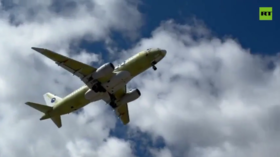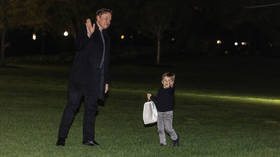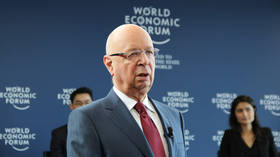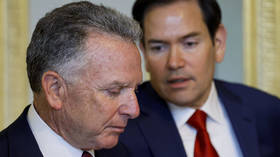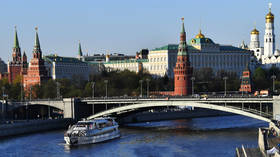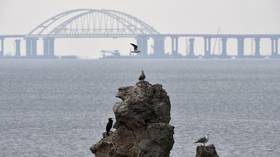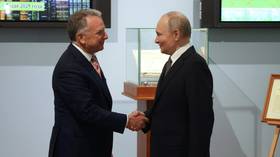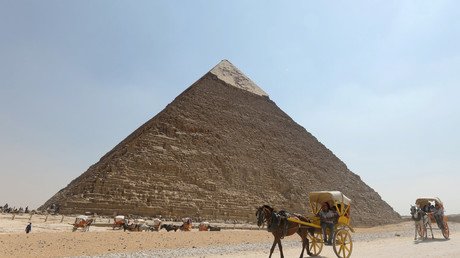US would attack foes & friends to protect its hegemony and doesn’t shy away from using terrorists as proxies – Assad to RT
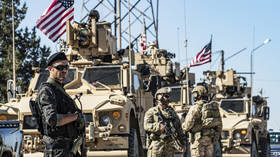
Syria became a testing ground for the US as it refines its tools to safeguard global hegemony, President Bashar Assad told RT’s Afshin Rattansi in an exclusive interview. He also explained what many Syrians are fighting for.
Washington sees its former dominant role slipping away and is trying to preserve it using all means available, the Syrian leader believes. So the US would “fight the Russians, the Iranians, the Syrians, whoever said ‘No’. Even their allies if they said ‘No’. Like the Western governments, they will fight with them,” he said.
In fact, Syria was targeted by the US after two very costly direct military invasions in Afghanistan and Iraq. In the latter case, the US and its allies fought against Saddam Hussein – an Iraqi strongman, who enjoyed active support of Washington and London for decades – particularly in his war with another American rival – Iran.
Yet, later, relations between them soured in the wake of the Gulf War and Saddam’s Iraq was eventually designated a target for US invasion in 2003.
Campaigns against Saddam and the Taliban in Afghanistan turned out to be too costly for Washington and apparently brought lower yields than expected.
So, the US took a different approach in an attempt to topple his government, Assad said, a war through jihadist proxies. Contrary to the public declaration that terrorist groups like Al-Qaeda, the Nusra Front or Islamic State (IS, formerly ISIS) were to be eliminated, the US had no qualms about supporting them as long as they were following their goals.
Also on rt.com ‘Like a giant ISIS recruiting poster’: Trump’s Syrian oilfield occupation slammed by ‘moderate’ rebel recruiter Biden“Al-Qaeda is a proxy against the Syrian government, against the Russian government and the Iranian government,” he explained.
How did ISIS rise suddenly in 2014?! Out of nowhere! Out of nothing! In Iraq and Syria at the same time, with American armaments?! It’s very clear.
US hand in glove of terrorists
He said IS at the peak of its power could not have been smuggling oil worth millions of dollars per month out of Syria without the US turning a blind eye.
“Since ISIS started … looting Syrian oil in 2014, they had two partners: [Turkish President Tayyip] Erdogan and his coterie, and the Americans, whether the CIA or others,” he said. The US-supervised looting of Syria’s riches openly continues today, he added. Yet, that looting – so the president says – doesn’t stop when a war ends.
The Americans always try to loot other countries in different ways regarding not only their oil or money, or financial resources. They loot their rights, their political rights, every other right. That's their historical role at least after World War II.
Assad said that murky ties between Washington and hardline militants in Syria is the reason why he is skeptical about Donald Trump’s claim that American special ops indeed took down IS leader Abu Bakr al-Baghdadi. Just like in the case of Osama Bin Laden, no definitive proof of the death was made public, which contrasts sharply with what happened to people like Iraqi leader Saddam Hussein or Libyan leader Muammar Gaddafi. Moscow, for its part, also has reservations about claims Baghdadi is dead, calling for the release of some definite proof.
Also on rt.com Al-Baghdadi was US ‘spawn’, his death is still an open question – LavrovRegardless of whether al-Baghdadi is dead or alive, the important thing is not to be sidetracked by the brouhaha, Assad believes.
The whole story was about whitewashing the American hand from being hand in glove with the terrorists during the last, not only few years, but during the last decades.
People fight and die for a cause, not a person
The narrative supporting regime change in Syria usually focuses on Assad and his inner circle, claiming that disposing of the so-called ‘dictator’ would be enough to ensure positive change in Syria. “Assad must go” has long been a mantra in the West. The man himself says the notion is ridiculous since hundreds of thousands of Syrians fighting on the side of Damascus are certainly not putting their lives on the line for his person.
People would die, especially en masse for a cause, and this cause is defending their country, defending their existence, their future.
The same is even truer for nations like Iran and Russia, which sent their troops to help the Syrians in the battle against terrorism. Believing that any government would bet its interests on the political survival of a single foreign leader “is against logic,” Assad said. The leader is often accused of using brutality and terror tactics against the civilian population to turn against the militant groups opposing Damascus and pledge allegiance to the Syrian government. He argued that such an approach would be not only immoral but also impractical.
“The war in Syria was about capturing the hearts of the people, and you cannot capture the hearts of the people by bombarding them,” he said. “How could the Syrian people support their state and their president and their army, if they are killing them?”
Economic warfare continues
Assad said that Western leaders who say that the Syrian people are suffering under his government are hypocrites because the very same leaders inflict suffering on Syrians through economic sanctions. It is basically just another way to try and ensure regime change, he argued.
This is maybe the last ditch-attempt in order to push them to be against their government. But they tried it last winter, they tried it before, and it did not work because the people knew the whole story, and they knew where their interest lies.
Syria traditionally has a strong public sector, which provides many services like healthcare or education free or at subsidized prices. With the economy crippled by the war even more people rely on the government to get basic things like food or heating oil.
The sanctions, however, are not limited to the government, Assad said. Private investors are strongly discouraged by the US and its allies from bringing capital into government-controlled parts of Syria, which makes economic recovery, reconstruction and return of refugees harder.
Think your friends would be interested? Share this story!



